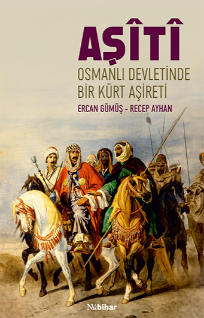
Osmanlı Devleti’nde Bir Kürt Aşireti Aşîtî
This monograph written about the Aşitî Tribe occupies a distinguished position and is an exemplary study in this respect. This study, which re-discloses many historical information that remained in the sediment of centuries and was forgotten by its members and is being addressed for the first time, succeeds in making us feel the historical consciousness in our bones.
In the work, starting from the Aşitî nomenclature, the core problematic of the Ottoman-Kurdish alliance against the Safavid threat is questioned. As a result of this alliance, the binding of the administrative positions of Kurdish judges, mirs, umeras and tribal leaders within the Ottoman Empire to hereditary legal procedures is mentioned.
In addition to where the tribe spread in the geographical area, its process in Ottoman history is examined in the light of chronicles, travel books, local history studies and various documents in the Ottoman Archives. In this context, it is revealed that Asîtî had a share in establishing dominance starting from Akçakale, Nusaybin and Hasankeyf to Mardin, Cizre, Midyat, Dara and its period and that it left important historical effects in this region. In addition, the political capacity reached by the Asîtî Confederation was so influential that one of the sub-dialects of Yukarı Kurmancî (Kurmanciya Jorîn) was given the tribe's name. The fact that the forgotten narrative of the Asîtîs, especially their rivalry with Cizre Miri III. Şeref, is presented with documents is an important section proving the originality of the work. The work reveals the evolution of tribal administration in the Ottoman State from the establishment of primary relations to the Tanzimat process. This is, of course, another originality of the work.
| Publisher | : | Nubihar Publications |
| Number of pages | : | 200 |
| Publication Year | : | 2024 |
| ISBN | : | 9786256605008 |


